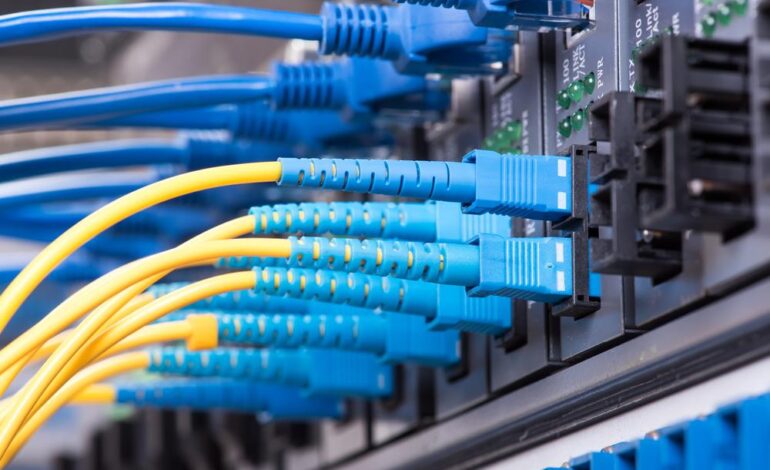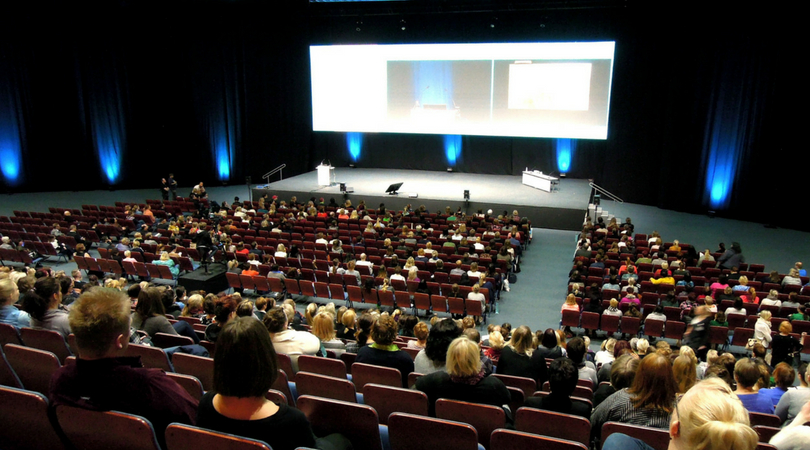
Fiber Optic vs. Cable Internet: Which Is Better?
Fiber Optic vs. Cable Internet: Which Is Better?
It is safe to say that staying connected to the modern world is no longer a problem because several different types of internet are available. But in this blog, we will discuss two major internet connections that dominate the broadband market: fiber optic and cable internet. Each type has its own set of disadvantages and advantages. However, selecting the right internet connection is significant to ensure a smooth online experience. If you are confused, about which internet you should opt for, then give this blog a good read, so you can make an informed decision.
Understanding Cable Internet
Cable internet utilizes copper and uses the same coaxial network as cable television to deliver an internet connection to your house. This type of internet connection works by sending data signals through coaxial cables, and these signals are transmitted to and from a modem. The modem then uses an Ethernet cable, which is connected to your computer and gives access to a fast-speed internet connection.
Advantages of Using Cable Internet
Following are the advantages of choosing a cable internet connection.
Bundling Options
Many cable internet providers often offer bundled services, combining internet, television, and phone services into one package. This can be convenient for users who want to avail of several telecom services from a single provider. For instance, if you choose RCN cable TV, you can bundle your internet and TV subscription. This way, you can streamline your payment options and even save money.
Wide Coverage
According to the Internet & Television Association (NCTA), cable internet service is available to nearly 85% of US households. The mere reason is that the cable TV infrastructure is pretty old and already in place in several areas. This makes cable internet services an accessible option for many people.
Disadvantages of Cable Internet
Following are the disadvantages of choosing cable internet services are as follows.
Asymmetric Speeds
Unlike fiber internet, cable connections usually offer faster download speeds than upload speeds. And lower upload speeds can adversely affect activities such as video conferencing, cloud backups, live sessions, online gaming, and so on.
Bandwidth Congestion
Cable internet technology relies on shared bandwidth. This means that if multiple internet users in the same neighborhood are sharing the same connection then during peak usage times, your internet speed can be drastically affected. Simply put, you will have to face the problem of a sluggish or poor internet connection.
Vulnerability to Weather
Conditions
Cable infrastructure is vulnerable to harsh weather conditions such as thunderstorms, heavy rainfalls, or strong winds. Such extreme weather events can cause cable outages and disruptions in internet service.
Understanding Fiber Internet
Fiber optic technology has become a famous buzzword in the broadband market because it is known as the fastest internet connection. This type of internet connection is delivered via fiber optic cables, and they can carry large amounts of data over long distances at the speed of light. This results in incredibly fast and reliable internet connections.
Advantages of Using Fiber-Optic Internet
Following are the benefits of choosing fiber optic internet services.
Lightning-Fast Speeds
Fiber optic internet offers high-speed internet connection that can reach up to 1000 Mbps speed. It is significantly faster than any other type of internet connection and downloads files quickly, offers lag-free online gaming, buffer-free streaming sessions, and so on.
Symmetrical Speeds
The major benefit of choosing a fiber optic internet connection is that it offers symmetrical speeds, meaning that the upload speed is similar to its download speed. Symmetrical speeds are particularly beneficial for attending video conferences or accessing information from cloud storage.
Reliability
Fiber optic technology is entirely grounded, so the fiber cables remain intact and can withstand water and harsh weather conditions. So, this technology is less prone to downtime and you can use the RCN internet seamlessly without any interruptions.
Lower Latency
Fiber internet has low latency as compared to other types of internet connections. This means there is minimal delay between sending a request and receiving a response. This makes fiber optic technology an incredible choice if you have a large family and several users rely on extensive bandwidth activities such as online gaming, video conferencing, streaming, and so much more.
Disadvantages of Choosing Fiber-Optic Internet
Following are the disadvantages of choosing cable internet services are as follows.
Expensive to Install
The major disadvantage of choosing fiber-optic technology is that it is quite expensive to install. One has to call technicians as the technology is entirely grounded. Even after installation, if your connection does not work you have to call professionals so they can check and diagnose the network problem.
Fragility
Since the technology is made of glass, they are more fragile than electrical copper cables, and if, during installation, they are bent too much, they will break. This is the major reason that fiber optic internet providers send a team of professionals, so your connection is seamlessly deployed.
In Brief
Fiber optic technology uses glass to transmit data, while cable internet uses copper coaxial cables. For most people, cable technology tends to offer great entertainment, as it can support a full household of internet users. In contrast, fiber optic technology is known to be the fastest type of internet connection that allows users to use the internet seamlessly. Both have their strengths and weaknesses; the better option for you depends on your internet usage. Fiber internet might be a good option for you if you value fast speeds. However, if availability and bundled services are more important to you, cable internet can be a good option.
Frequently Asked Questions (FAQs)
- What is the major difference between fiber and cable internet?
The main difference lies in the infrastructure. Fiber internet transmits data as pulses of light through thin strands of glass or plastic fibers, while cable internet uses copper coaxial cables to deliver an internet connection.
- Is fiber internet available everywhere?
No, fiber internet is not available everywhere. So, if you are willing to choose its services, then do check with local internet service providers to determine if fiber internet is available in your area.





